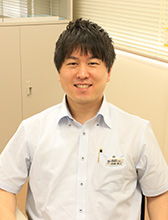
福嶋勇太研究室



我々の身の回りにはさまざまな機械やロボットが存在しています。しかし、操作に慣れが必要であったり、その機械もしくは与えられた情報を解釈するために高い専門的知識が必要であったりなどは、必ずしも「ヒトに優しいシステム」とは言えません。
一方で我々ヒトが協調作業をする際は、相手の意図した動きを予測し、適切に協調動作することができます。もし機械が人間の意図する動きを予想して動作することが実現できたら、またはヒトが欲しいと考えている情報を提示することができたら、それは「ヒトに優しいシステム」になるのではないでしょうか。
本研究室では、「ヒトに優しいシステムの実現」を目的に、人間を支援または協調動作をするための機械やロボットの研究に取り組んでおり、パワーアシスト装置やVR・ARによる情報提示、医療機器など幅広いテーマを研究の対象としています。
| 教員名・所属 | 福嶋勇太 / 総合理工学科 ロボティクス・AIコース |
|---|---|
| 専門分野 | ロボット工学、人間機械協調、制御工学、医用工学 |
| 研究テーマ | 人間の行動を規範とした人間支援・協調ロボットの研究 |
| 研究キーワード | 人間機械協調、ロボット、暗黙知、制御 |
| 教員紹介URL | https://www3.med.teikyo-u.ac.jp/profile/ja.261dea51455f2135.html |
心嚢穿刺ロボットの開発
心臓を包む心膜に針を刺し、心臓と心膜の間に貯留した液体を排出する心嚢穿刺手技は、直ちに貯留液が排出されなければ命に係わる重要な手技である一方で、心筋や重要な臓器の損傷が高い確率で発生し、最悪の場合死亡に繋がります。そこでヒトの動作を規範として、心嚢穿刺の一連の手技を自動化し、迅速かつ安全に穿刺ができる穿刺ロボットの開発を最終的な目標とし、「穿刺目標決定の自動化」「針先の軌道修正の自動化」「穿刺目標到達検知の自動化」をテーマに取り組んでいます。
パーキンソン病患者の振戦抑制デバイスの開発
パーキンソン病の患者さんは国内だけでも15万人以上いるとされていますが、この根本的治療方法は見つかっていません。一方で、パーキンソン病の患者さんが抱える症状のひとつに「異常な手足の震え(振戦)」があります。振戦は、「物を持つ」や「字を書く」「立つ・歩く」など我々が当たり前に行えることが困難になり、その生活に大きく影響を与える重要な問題とされています。そこで本プロジェクトでは、その異常な震えを抑制・緩和するデバイスの開発を目標としています。